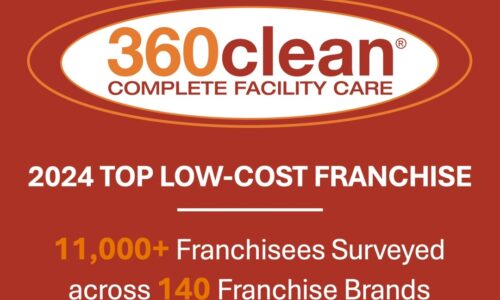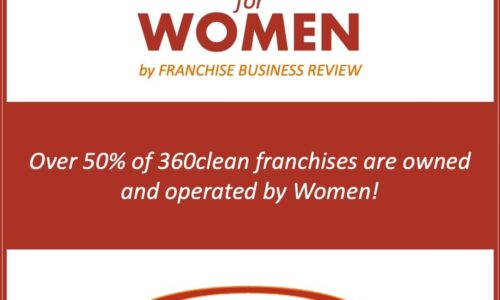Not all cleaning businesses are the same. Neither are their profits. That’s why if you’re interested in starting a cleaning business, it’s essential to consider what type of services you intend to provide. Generally, commercial cleaning businesses are more profitable than residential ones, especially when you add on services like floor waxing, window washing, and deep disinfecting. With that, several additional factors can impact the profitability of a commercial cleaning business. Here are a few things to consider on your journey to business ownership.
What Are Your Startup Costs?
To start a business, you’ll need to invest capital. This money can go toward things like:
- Training
- Equipment and supplies
- Legal fees (e.g., business registration)
- Marketing
- Administrative fees
Some of these expenses will depend on your geographic location. For example, Virginia residents must pay a business registration fee of $100 to form a limited liability company (LLC) or $75 to register a corporation. Similarly, California residents must pay $95 to form an LLC or $125 to form a corporation.
If you decide to purchase a franchise, you’ll also need to pay a franchising fee to operate legally under the franchising company’s brand. While this can add to your costs, most cleaning franchise owners love the support they receive from their parent company.
What Is Your Potential Customer Base?
Choose your target market wisely, as it will affect your final profits. For example, according to the business resource site Jobber, residential cleaning prices have risen by 9.4% since 2021. Additionally, predictions show that 80% of American households will rely on cleaning services by 2024. Yet, despite these trends, many cleaning company owners recognize that commercial cleaning is the preferred business model. Why?
To profit from residential cleaning, you’ll need a high customer volume. But commercial cleaning services serve small, midsize, and large businesses. Larger customers and fewer clients often make securing lucrative, long-term contracts easier. Consider all the retail businesses, offices, senior living centers, churches, and other companies in your area that may need professional cleaning services.
What Is Your Potential Revenue?
Revenue can often be the most complicated variable to forecast accurately. First, you’ll need to know your customer volume, then assign a rate for your cleaning services. Next, cleaning business owners must find the right balance between competitive rates and prices that allow them to profit. You’ll also need to choose between charging an hourly rate, a flat rate, or a combination of the two. Hourly rates tend to be more accurate, but customers may be more willing to commit to a predictable flat rate that they can fit into their budget.
If you’re feeling overwhelmed with information already, you aren’t alone! This is another reason why it makes sense to invest in a cleaning franchise. Within a franchise ecosystem, these crucial decisions are made for you—all you must do is implement the business model in your community.
What Are Your Operating Expenses?
After your initial startup, you’ll still need working capital to cover your operating costs. Cleaning businesses can involve many expenses, including:
- Purchasing and maintaining inventory
- Maintaining equipment
- Payroll
- Business insurance
- Marketing fees
- Banking fees
- Taxes
- Real estate space
Not every business will have the same expenses, of course. For example, some cleaning business owners can operate from home, eliminating the need for commercial real estate. Nevertheless, these sorts of overhead costs can eat into your bottom line. So again, a franchise model can offer an advantage by streamlining your operating procedure and helping you obtain supplies and equipment efficiently and affordably.
Will You Need to Pay State or Federal Taxes?
Most business owners will have to pay federal and state taxes for the income they receive from their businesses. However, some states, such as Florida, allow exemptions from business taxes, though this may not apply if you operate a commercial cleaning company.
To enhance your profitability, you’ll need to plan your taxes accordingly. For example, business owners can reduce their tax liability by deducting qualifying business expenses. Money spent on supplies, equipment, and other necessary business expenses qualifies your business for tax deductions. Similarly, the IRS permits you to deduct a portion of your housing expenses if you use a home office.
If you have trouble distinguishing deductible expenses from non-deductible ones, consult a tax professional for help.
Launch Your Business with 360clean
By now, you’ve likely determined that a cleaning franchise is the best way to go. While there are more upfront costs, the benefits of a franchise model make it worth the initial investment. Remember, a franchise doesn’t guarantee profits, but it reduces many risks associated with starting your own business. At 360clean, we offer our franchisees the following benefits:
- A competitive niche in health-focused cleaning;
- A comprehensive training program for both you and your employees;
- Personalized support focused on your goals and needs;
- A turn-key system for growing your business;
- Back office support;
- And more!
Are you ready to take the next step in your journey to business ownership? To learn more about starting a franchise with 360clean, contact us today for more information.




